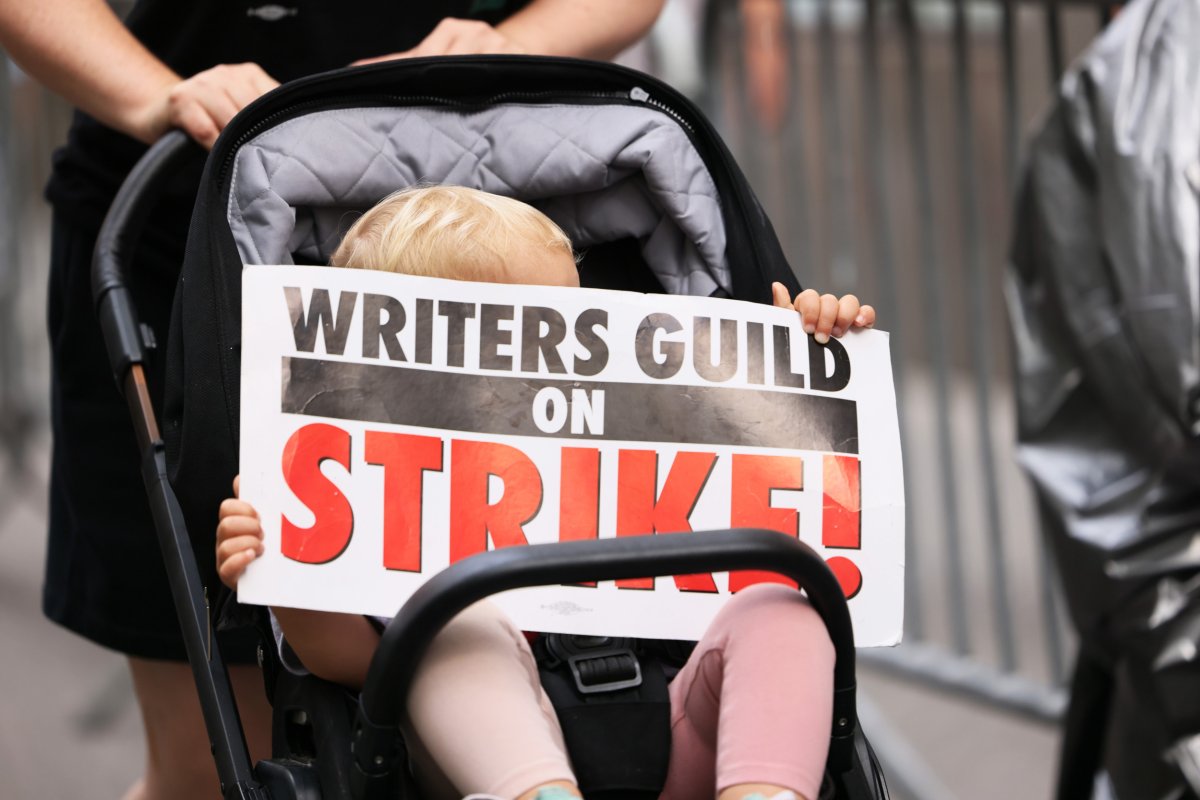This Labor Day, America's labor movement is at the brink of a pivotal moment. Conservatives are now joining liberals in embracing the vital role of labor unions for advancing a worker-centric society—albeit with some crucial reforms in mind.
This comes at a time when workers are feeling apprehensive about their future labor market prospects, especially with recent developments in the field of artificial intelligence. Concurrently, the independent economy—comprised of freelancers, gig workers, and conventional contractors—is revolutionizing how we work and challenging the relevance of traditional, employee-centric labor unions.
It is in this very moment that unions could play a transformational role—something that would require rethinking and redesigning some aspects of America's institutional labor framework. Change is never easy, and the status quo will always have powerful support. But workers are already experiencing drastic transitions, and everyone—unions included—should be empowered to keep up.

Two key changes can unlock the future of an innovative and worker-centric labor movement. First, the National Labor Relations Act (NLRA) of 1935 should be updated to promote a more diverse union landscape in which workers can choose the one that best serves them. Second, we must give workers greater opportunity to select benefit packages offered by more than just their employers. This reform can serve all workers—not just those labeled as employees—while also allowing unions to step in and administer benefits that are more portable and tailored to the individual worker.
The exclusive representation clause in the NLRA is at the heart of the challenge to modernize unions for the 21st century workforce. The law provides government-granted monopoly status to a union supported by 51 percent of an employer's workers, giving it the sole authority to negotiate. This means that if some workers want a different union—for example a newer one that might raise the bar in terms of what it can offer—they are out of luck. In an era where competition has delivered better goods and services for us as consumers, why deny the benefits competition can bring us as workers?
What's more, in a large majority of cases, all workers—even nonunion members—are required to pay dues to that one union. That's because unions are also mandated to represent all workers in a bargaining unit, another archaic feature that should be reformed. Finally, the NLRA prohibits any formal cooperation between workers and the employer that is outside of the government-granted monopoly union, thereby banning other mechanisms to enhance a worker's voice. Unions have accomplished a lot, but this is no longer a fair bargain for workers in the modern economy. They deserve both representation and options.
Proponents of these old NRLA clauses may argue that a powerful "Big Labor Union" is a necessary evil to fight the powerful "Big Corporation." But this thirst for power is alienating union workers. Indeed, a recent American Compass survey reveals that among American workers who said they would vote against a union, the top reason cited was union political activity. A 2017 MIT survey found similar results: While workers generally had positive attitudes toward unions, union political activity and strikes were the only two factors that made workers lesslikely to view organized labor favorably.
To truly unpack these worker preferences, a high-profile 1994 study by Harvard economist Richard Freeman and law professor Joel Rogers found that workers would prefer a union that cooperated with management but had no decision-making power over a powerful union that management opposed. In other words, workers desired cooperative unions, not necessarily powerful and adversarial ones as they often exist today. They concluded that our system had not delivered to American workers the diverse set of institutions they sought in the workplace. Instead, this system offers a single choice—collective bargaining through the winner-takes-all union—or no independent representation or participation in the workplace.
The second challenge is based partly on the growing number of self-employed, independent workers who may not have access to traditional work benefits. This has led to state and federal policy battles to awkwardly reclassify them as employees, against their wishes. But the real culprit is that our nearly century-old labor policies have created a system that prioritizes the immobility of benefits (e.g., health care being tied to one single employer) in a new world where some workers have come to place more value on choice and portability.
While individual employers could (and probably should) continue to offer benefits of their own, laws that overtly tie our benefits to our employers should be reformed to jumpstart a system of flexible benefits for all workers. Unions would have a vital role to play by acting as third parties in administrating these benefits. Professional nonprofits like the Freelancers Union already provide group insurance plans and other services to self-employed workers, albeit in a limited capacity.
These new policies would naturally require time before they pay off. No matter what, some unions will have to accept that their emphasis on less worker turnover and more rigidity in our jobs is at odds with workers' growing demand for flexible arrangements and mobility.
This 21st century vision of an innovative organized labor movement, enabled by the proper institutional reforms, would provide training and skill development to workers, administer insurance and social benefits programs, and provide a voice to workers in negotiations with employers—and it would do so in ways that workers desire in the modern economy.
Liya Palagashvili is a senior research fellow with the Mercatus Center at George Mason University.
The views expressed in this article are the writer's own.
Uncommon Knowledge
Newsweek is committed to challenging conventional wisdom and finding connections in the search for common ground.
Newsweek is committed to challenging conventional wisdom and finding connections in the search for common ground.
About the writer
To read how Newsweek uses AI as a newsroom tool, Click here.








